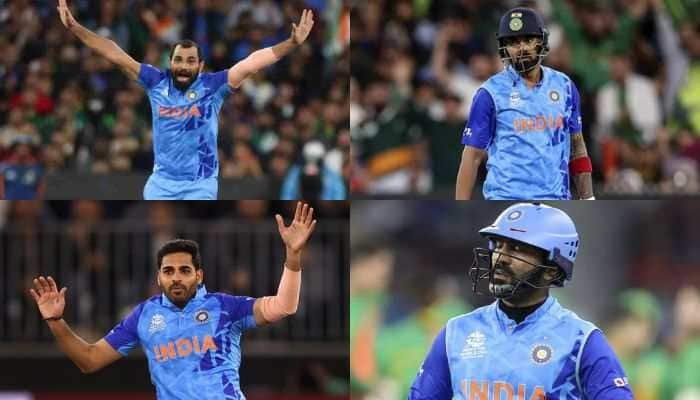`China cautiously watching India-Japan ties`
The changing strategic milieu of Asia-Pacific brings a chance to alter India-Japan ties.
Trending Photos
)
 Prime Minister Dr Manmohan Singh has just concluded a visit to Japan. It is believed that the visit will put ties between New Delhi and Tokyo in top gear. The visit also assumes significance as it came amidst China’s deteriorating ties with Japan. The changing strategic milieu of Asia-Pacific brings a chance to alter the ties between New Delhi and Tokyo, economically as well as politically.
In an exclusive interview with Kamna Arora of Zeenews.com, Shamshad Khan, an expert on Japan, discussed the PM’s visit, Indo-Japan nuclear ties, and the rise of China.
Shamshad Ahmed Khan is Research Assistant at the Institute for Defence Studies and Analyses, New Delhi.
Q: How is PM Manmohan Singh’s visit to Japan, Vietnam and Malaysia strategically important in context to India’s ‘Look East Policy’?
Khan: The Indian Prime Minister’s three-nation visit and participation in fifth East Asia Summit (EAS) as well as India-ASEAN summit is aimed at re-invigorating its ‘Look East Policy’ initiated during PV Narasimha Rao’s government. India is also trying to seize this opportunity to elevate its diplomatic stature by participating with a high-level delegation where it would also share big table with the two major powers, the US and Russia, who would be joining the EAS for the first time.
The EAS may emerge as another multi-lateral forum which could have major say on political and strategic issues of the region and the world. The multi-lateral platform may provide India a say on various issues the region may face with. India does not want to repeat the strategic mistake of ignoring the ASEAN members. You know, India missed the opportunity to renew its link with Southeast Asian countries when it was offered to join the nascent grouping of Southeast Asian countries in 1967. India realised the strategic mistake only when it emerged as a major trading bloc and was propelling the economic growth of the region. Therefore, Prime Minister’s visit to Malaysia - a founding member of ASEAN - is aimed at revitalising India’s relations and Indian Diaspora in Malaysia may become a motivator of India’s Look East Policy.
For India, Malaysia may also serve as springboards to reach out to other ASEAN members. Malaysia is also important for India as it has a major say in the Organisation of Islamic Countries. Bilaterally, the visit is also important as India is seeking to finalise a Comprehensive Economic Cooperation Agreement with Malaysia and seeks Malaysian help in infrastructure development in India. With Japan, India has already completed a Comprehensive Economic Partnership Agreement which would help increase bilateral trade between the two countries ten folds during the next 10 years. So the overall focus of PM’s visit is to enhance economic cooperation which is an essential component of strategic cooperation between nation states.
Q: With India unlikely to sign CTBT in the near future and the issue being a sensitive one for Tokyo, do you see an Indo-Japan civil nuclear deal taking shape anytime soon? How crucial is that deal for India’s nuclear energy ambitions?
Khan: Coming to the second part of the question first. A nuclear agreement with Japan is crucial for India to kick start nuclear energy generation as apart from a Russian company other three companies - GE, Westinghouse and Areva, which have bagged contract to set up nuclear energy plants - are either subsidiaries of Japanese companies or the Japanese companies have major stakes in that. The problem with the Japanese companies, which would be providing crucial parts and equipment, is that the Government of Japan had adopted a legally binding principle of not selling arms and arms related technology to any country in 1976. The principle is still in place, though the business lobby in Japan is pushing to review the policy. So after a protracted negotiation with the US for a civilian nuclear agreement and an NSG waiver for India, Japan’s green signal to its companies to sell nuclear reactor equipment to India and a civilian nuclear cooperation agreement with India, India is facing a problem to kick start nuclear energy generation. A delay in signing the agreement would mean a delay in energy production which is vital for maintaining sustained economic growth.
Now, as regards possibility of signing a nuclear agreement with Japan. See, one of the positive outcomes of negotiation with Japan over the issue is that Tokyo has softened its previous stance. It was arguing that it will not have nuclear cooperation with a non-NPT signatory (India) but now it is putting a condition that a nuclear cooperation with India would end if New Delhi further conducts a nuclear test. It seems they are putting these conditionality to allay the concern of nuclear allergic Japanese who are averse to this kind of agreement with India. Now, the task of Indian diplomacy is to convince Japanese people more and Japanese administration less. For the first time, the message has gone to Japanese people about a unilateral moratorium of not conducting an explosive test through Prime Minister Manmohan Singh’s statement widely covered by mainstream and vernacular media. The common Japanese had never heard of a unilateral moratorium on testing ever before.
India should use its diplomatic tools to convince the Japanese masses that India has a clean record and has never been a nuclear proliferator and has no intention to use the Japanese technology for purposes other than civilian nuclear energy generation.
We should not worry that this time we could not clinch the nuclear cooperation agreement with Japan as the issue is not going off the agenda. The Japanese government will continuously face pressure from a business group to push the deal as they do not want to lose their share in the USD 150 billion nuclear energy market in India. Japan’s Ministry of Economy, Trade and Industry is also pushing hard to achieve the deal.
Q: Of the three blocs – SAARC, ASEAN and APEC – which holds the most significance for India?
Khan: Certainly it could have been SAARC had it achieved the shape its founder had envisioned, as it could have cut so many costs such as transportation of goods and expenses incurred on peoples’ communication etc. But till SAARC or BIMSTEC or another regional cooperation organisation in the region takes a final shape and emerges as a strong trading bloc, ASEAN holds the most significance for New Delhi as it has more to complement India’s business ties with region and vice versa.
Q: Indian PM’s visit and the agreements signed were prominently and widely covered in the Japanese media? Does it reflect on India’s growing stature in today’s world?
Khan: I do remember when the Indian Prime Minister had visited Tokyo (in the past) and I was there at Waseda University; the story of the arrival of “India’s Singh” was no longer than a snippet. The wide coverage and analysis and editorials in the Japanese as well as English dailies reflect the fact that India’s economic growth has changed Japanese perception vis-à-vis India. You know when you achieve economic growth and establish yourself as an economic power, this kind of attention you automatically gain. This is the case with India and the Japanese especially count India as “1.2 billion people economy achieving 9% growth” and see lots of opportunity to invest here which could help them come out of the economic slump.
Q: Japan has been India’s lead partner in infrastructure development here. In what areas can Japan’s technological advancement help India take a giant leap forward?
Khan: The Japanese invest pattern in India suggests that they will continue to pour money on infrastructure development such as developing rail and road network as well as they would like to harness the business potential in electronic appliances. The completion of the dedicated freight corridor will help India’s economic growth as the movement of goods will be faster. But we should convince the Japanese to enter into other sectors or may form joint venture such as in recycling and providing clean and drinking water to Indian households. The Japanese are very efficient in recycling the garbage. You will not see any garbage house which you see alongside our roads. You will also not see water being transported by private vendor to any house in Tokyo. Tokyo Metropolitan manages clean drinking supply to each house and no report of water borne disease has ever been heard there. So if we emulate the Japanese model in these sectors it will be a great service to our citizens and tax payers.
Q: Both India and Japan share an uneasy relationship with China and the two continue to enhance their bilateral engagement. Is that going to irk Beijing?
Khan: Beijing watches every development in New Delhi-Tokyo relations cautiously. But that should not deter us in forging a relationship with Japan as we share common values of democracy, freedom and respect for basic human rights.
Prime Minister Dr Manmohan Singh has just concluded a visit to Japan. It is believed that the visit will put ties between New Delhi and Tokyo in top gear. The visit also assumes significance as it came amidst China’s deteriorating ties with Japan. The changing strategic milieu of Asia-Pacific brings a chance to alter the ties between New Delhi and Tokyo, economically as well as politically.
In an exclusive interview with Kamna Arora of Zeenews.com, Shamshad Khan, an expert on Japan, discussed the PM’s visit, Indo-Japan nuclear ties, and the rise of China.
Shamshad Ahmed Khan is Research Assistant at the Institute for Defence Studies and Analyses, New Delhi.
Q: How is PM Manmohan Singh’s visit to Japan, Vietnam and Malaysia strategically important in context to India’s ‘Look East Policy’?
Khan: The Indian Prime Minister’s three-nation visit and participation in fifth East Asia Summit (EAS) as well as India-ASEAN summit is aimed at re-invigorating its ‘Look East Policy’ initiated during PV Narasimha Rao’s government. India is also trying to seize this opportunity to elevate its diplomatic stature by participating with a high-level delegation where it would also share big table with the two major powers, the US and Russia, who would be joining the EAS for the first time.
The EAS may emerge as another multi-lateral forum which could have major say on political and strategic issues of the region and the world. The multi-lateral platform may provide India a say on various issues the region may face with. India does not want to repeat the strategic mistake of ignoring the ASEAN members. You know, India missed the opportunity to renew its link with Southeast Asian countries when it was offered to join the nascent grouping of Southeast Asian countries in 1967. India realised the strategic mistake only when it emerged as a major trading bloc and was propelling the economic growth of the region. Therefore, Prime Minister’s visit to Malaysia - a founding member of ASEAN - is aimed at revitalising India’s relations and Indian Diaspora in Malaysia may become a motivator of India’s Look East Policy.
For India, Malaysia may also serve as springboards to reach out to other ASEAN members. Malaysia is also important for India as it has a major say in the Organisation of Islamic Countries. Bilaterally, the visit is also important as India is seeking to finalise a Comprehensive Economic Cooperation Agreement with Malaysia and seeks Malaysian help in infrastructure development in India. With Japan, India has already completed a Comprehensive Economic Partnership Agreement which would help increase bilateral trade between the two countries ten folds during the next 10 years. So the overall focus of PM’s visit is to enhance economic cooperation which is an essential component of strategic cooperation between nation states.
Q: With India unlikely to sign CTBT in the near future and the issue being a sensitive one for Tokyo, do you see an Indo-Japan civil nuclear deal taking shape anytime soon? How crucial is that deal for India’s nuclear energy ambitions?
Khan: Coming to the second part of the question first. A nuclear agreement with Japan is crucial for India to kick start nuclear energy generation as apart from a Russian company other three companies - GE, Westinghouse and Areva, which have bagged contract to set up nuclear energy plants - are either subsidiaries of Japanese companies or the Japanese companies have major stakes in that. The problem with the Japanese companies, which would be providing crucial parts and equipment, is that the Government of Japan had adopted a legally binding principle of not selling arms and arms related technology to any country in 1976. The principle is still in place, though the business lobby in Japan is pushing to review the policy. So after a protracted negotiation with the US for a civilian nuclear agreement and an NSG waiver for India, Japan’s green signal to its companies to sell nuclear reactor equipment to India and a civilian nuclear cooperation agreement with India, India is facing a problem to kick start nuclear energy generation. A delay in signing the agreement would mean a delay in energy production which is vital for maintaining sustained economic growth.
Now, as regards possibility of signing a nuclear agreement with Japan. See, one of the positive outcomes of negotiation with Japan over the issue is that Tokyo has softened its previous stance. It was arguing that it will not have nuclear cooperation with a non-NPT signatory (India) but now it is putting a condition that a nuclear cooperation with India would end if New Delhi further conducts a nuclear test. It seems they are putting these conditionality to allay the concern of nuclear allergic Japanese who are averse to this kind of agreement with India. Now, the task of Indian diplomacy is to convince Japanese people more and Japanese administration less. For the first time, the message has gone to Japanese people about a unilateral moratorium of not conducting an explosive test through Prime Minister Manmohan Singh’s statement widely covered by mainstream and vernacular media. The common Japanese had never heard of a unilateral moratorium on testing ever before.
India should use its diplomatic tools to convince the Japanese masses that India has a clean record and has never been a nuclear proliferator and has no intention to use the Japanese technology for purposes other than civilian nuclear energy generation.
We should not worry that this time we could not clinch the nuclear cooperation agreement with Japan as the issue is not going off the agenda. The Japanese government will continuously face pressure from a business group to push the deal as they do not want to lose their share in the USD 150 billion nuclear energy market in India. Japan’s Ministry of Economy, Trade and Industry is also pushing hard to achieve the deal.
Q: Of the three blocs – SAARC, ASEAN and APEC – which holds the most significance for India?
Khan: Certainly it could have been SAARC had it achieved the shape its founder had envisioned, as it could have cut so many costs such as transportation of goods and expenses incurred on peoples’ communication etc. But till SAARC or BIMSTEC or another regional cooperation organisation in the region takes a final shape and emerges as a strong trading bloc, ASEAN holds the most significance for New Delhi as it has more to complement India’s business ties with region and vice versa.
Q: Indian PM’s visit and the agreements signed were prominently and widely covered in the Japanese media? Does it reflect on India’s growing stature in today’s world?
Khan: I do remember when the Indian Prime Minister had visited Tokyo (in the past) and I was there at Waseda University; the story of the arrival of “India’s Singh” was no longer than a snippet. The wide coverage and analysis and editorials in the Japanese as well as English dailies reflect the fact that India’s economic growth has changed Japanese perception vis-à-vis India. You know when you achieve economic growth and establish yourself as an economic power, this kind of attention you automatically gain. This is the case with India and the Japanese especially count India as “1.2 billion people economy achieving 9% growth” and see lots of opportunity to invest here which could help them come out of the economic slump.
Q: Japan has been India’s lead partner in infrastructure development here. In what areas can Japan’s technological advancement help India take a giant leap forward?
Khan: The Japanese invest pattern in India suggests that they will continue to pour money on infrastructure development such as developing rail and road network as well as they would like to harness the business potential in electronic appliances. The completion of the dedicated freight corridor will help India’s economic growth as the movement of goods will be faster. But we should convince the Japanese to enter into other sectors or may form joint venture such as in recycling and providing clean and drinking water to Indian households. The Japanese are very efficient in recycling the garbage. You will not see any garbage house which you see alongside our roads. You will also not see water being transported by private vendor to any house in Tokyo. Tokyo Metropolitan manages clean drinking supply to each house and no report of water borne disease has ever been heard there. So if we emulate the Japanese model in these sectors it will be a great service to our citizens and tax payers.
Q: Both India and Japan share an uneasy relationship with China and the two continue to enhance their bilateral engagement. Is that going to irk Beijing?
Khan: Beijing watches every development in New Delhi-Tokyo relations cautiously. But that should not deter us in forging a relationship with Japan as we share common values of democracy, freedom and respect for basic human rights. 






)
)
)
)
)
)
)
)
)
)
